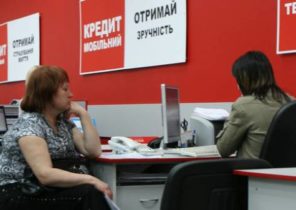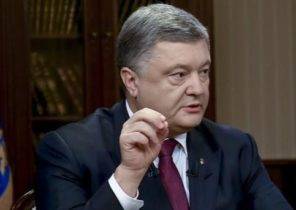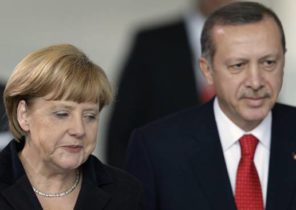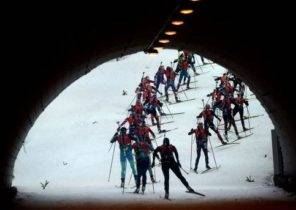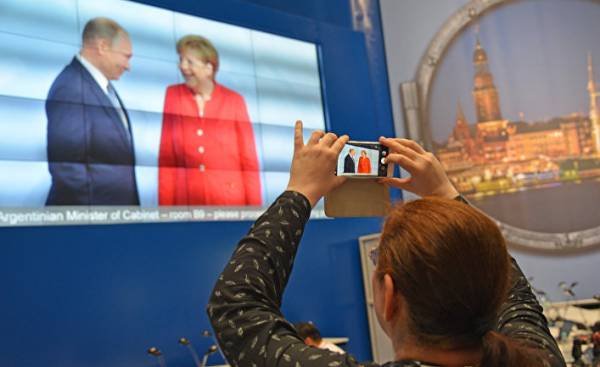
For nearly ten years over Europe hanging sword of Damocles geopolitical tensions and the financial crisis of 2008, the immigration crisis, Ukrainian conflict, Brakcet, elected Donald trump President of the United States, which spread the views of Washington and Brussels on many issues. Like the return of geopolitics to the fore, and was manifested in the unprecedented rise of tensions between the West and Russia since the end of the cold war.
Anyway, the combination of three factors still could have let the Europeans once again take in hand his own destiny, to find the “Gaullist path” between the West and the East. First of all, “the Atlantic revolution” in Washington and London allow the Europeans to regain control of their future, including in security matters. Further, to stop the wave of populism in Europe, the victory of Emmanuel Macron in France, as well as the likely re-election of Angela Merkel as Chancellor in September this year return Europe lacked her driving force: a strong Franco-German Duo. Finally, Russia, which managed to achieve strategic objectives in Ukraine and Syria, now realizes that a strong foreign policy must be based on sustained economic growth before the presidential elections in 2018.
Angela Merkel talked about this in may at the end of the G7 summit in Taormina: “the Time when we could rely on others in the past. We Europeans should fully take our destiny in our own hands.” The election of Emmanuel Macron also gave a new impetus to Europe: a new head of state launched the expected reforms Berlin and took in Versailles, Vladimir Putin.
At the same time, the adoption of the August 2 new us sanctions against Russia have convinced the Europeans of the need to define a new strategic path. Washington approved contrary to the opinion of Brussels, a number of measures that may affect European enterprises. These sanctions will allow the US to impose fines, to impose banking restrictions and excluded from the American tenders European companies that will participate in construction of Russian gas pipelines and will use the dollar as a settlement currency with Russia.
France has already burned to the sanctions against BNP Paribas, which in 2014 had to pay the us Treasury 9 billion euros to avoid prosecution, and now have to defend their interests. Washington uses the sanctions as extraterritorial law to the detriment of European businesses and benefit the American. The sanctions are aimed at a number of European energy companies, and pipeline projects, in particular the “Nord stream-2”, which is partly funded by the Engie and have to provide delivery of the Russian “blue fuel” to Europe via Germany, while the Americans are planning to export to the EU its shale gas at a higher price.
In such an environment led to the Franco-German Duo in the European Union must take the path of open and constructive dialogue with Moscow (we have so many shared political, economic, commercial and energy interests) and to facilitate the adoption of initiatives in this direction.
At first, the development of the dialogue can proceed in the framework of the summit Russia-EU which will adopt a road map of specific projects for creation, as he said at the time, Jean Monnet (Jean Monnet), actual solidarity. This solidarity must be related to the implementation of joint energy projects, as well as cooperation in agriculture and space exploration. In such circumstances, the EU should support the current trade cooperation, for example, “Nord stream-2” and Yamal, and to link the projects with solely by political considerations.
Further, the Russian-European relations can be deepened by holding a new Conference on security and cooperation in Europe, which in 1975 became the basis for discharge and restructuring. This conference could take place in Helsinki, like the first, and to raise the issue of free trade between the EU and Russia, as well as cooperation in the security sphere. Brussels and Moscow could sign a new Final act, which would terminate the discharge in the sphere of security and to form solidarity on the shared geographical space from Brest to Vladivostok.
